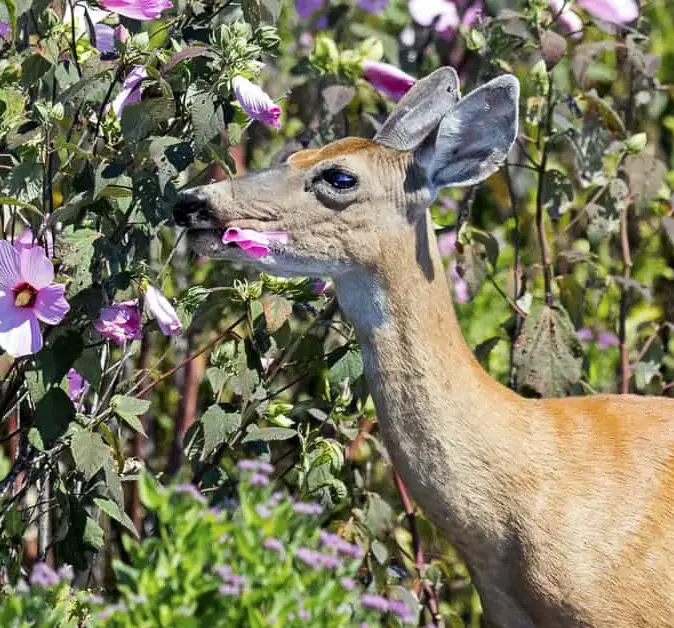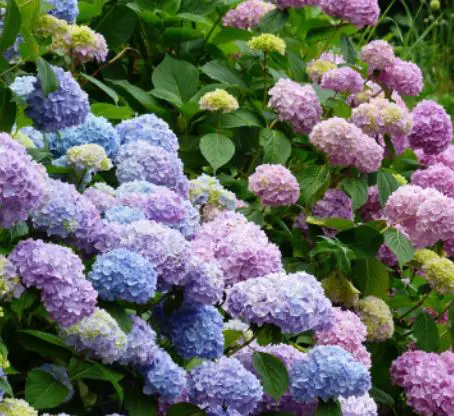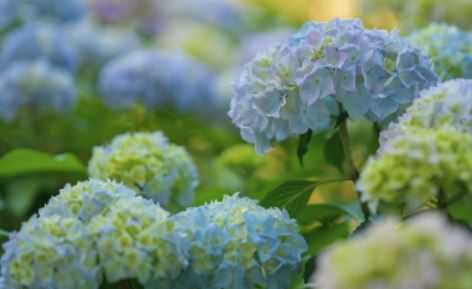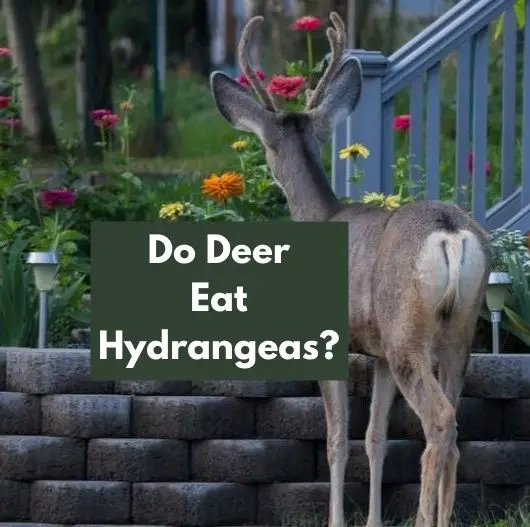If you’re like most gardeners, you probably have at least a few hydrangeas in your yard. Hydrangeas are beautiful flowers that add a touch of elegance to any garden. But do deer eat hydrangeas?
The answer is yes – deer will eat the blooms, buds, leaves, and even the stems of hydrangeas. Deer are attracted to hydrangeas because they’re usually well-watered, fertilized, and are tasty to them.
Considering that a single deer can eat several pounds of plants each day, you can see how deer eating hydrangeas can really do some serious damage to your garden!
In this article, we’ll discuss how to stop deer from eating your hydrangeas and keep them healthy and beautiful all season long.
Why Do Deer Eat Hydrangeas?

As we covered, deer will eat every part of a hydrangea flower (stem, leaves, seeds, blooms, bud, and all) when they’ve got the chance.
But why do they do this?
Deer like lush plants that are well-watered and fertilized, and hydrangeas check every box.
Also they are most likely to mow down your hydrangea bushes during spring, because they’re really hungry after a long winter.
Deer can do some serious damage to a large amount of hydrangea flower plants in a single sitting if they’re hungry enough!
This was confirmed in a 1999 study on deer plant eating habits by Cornell University.
Flowers like hydrangeas contain water, sugar, protein, and nutrients, which makes them an ideal food source for deer.
And don’t think that your newer hydrangea bushes are safe either: deer actually prefer new growth because they’re more tender.
Additionally, deer will consume a wide variety of foods like hydrangeas based on opportunity.
Hydrangeas attract deer because they are planted in the ground or in pots, so they’re easy to access.
If you’re not convinced, leave some potted hydrangeas out or plant some, and wait to see what happens!
How Do I Keep Deer From Eating My Hydrangeas?

There are a few things to keep in mind when you’re protecting hydrangeas from hungry deer: their habits, your scent, repellent options, and when you plant them.
Deer will eat nearly anything if they’re hungry enough, so your main goal is making your garden as least inviting to deer as possible.
Check out our guide on how to keep deer from eating plants where we cover 25 quick and easy tips for keeping hungry deer out of your garden.
Will My Hydrangeas Grow Back After Deer Eat Them?
Fortunately, hydrangeas are rather resilient and can survive a deer attack most of the time.
Unless the deer have severely chomped down your hydrangeas to the stems, expect stems to branch out and give a few new blooms within 2 or 3 days after being eaten by deer.
If deer happen to munch down your hydrangeas, continue regular care of your plants including watering and fertilizer as necessary until they’re back to good health.
Are Hydrangeas Good For Deer To Eat?

There are no nutritional studies or facts available on hydrangeas in terms of vitamins and nutrients that they contain.
However, hydrangeas are typically used for their anti-inflammatory and antioxidant effects, and it is believed that these benefits may translate to deer eating hydrangeas as well.
Do Deer Eat Hydrangeas? Wrapping Things Up
So, do deer eat hydrangeas?
The answer is yes!
Deer will eat all the hydrangeas they can, especially during spring when they’re hungry after a long winter and the flower, stems, and leaves are the most tender.
Fortunately there are many methods you can use and combine to keep deer away from your precious hydrangeas. Try a few and see what works best for you.
Have any observations to add to the discussion? Be sure to let us know in the comments below.
Check our our other helpful wildlife guides while you’re here:
- Do deer eat mums?
- Do deer eat roses?
- Do deer eat sunflowers?
- Do deer eat tulips?
- Do deer eat rhododendron?
- Do deer eat hibiscus?
- Will deer eat clematis?
- Do deer eat phlox?
- Do deer eat English ivy?
- Do deer eat Gerbera daisies?
- Do deer eat azaleas?
- Do deer eat honeysuckle?
- Do deer eat petunia flowers?
- Do deer eat water lilies?

